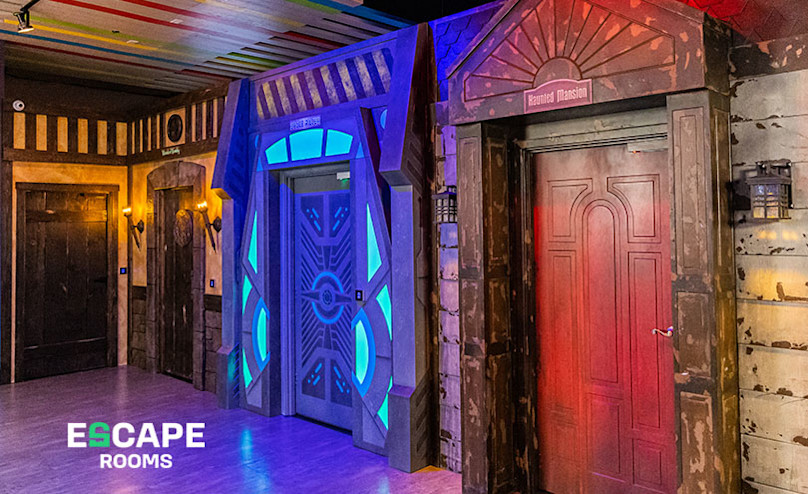Team Tasks at Minneapolis Escape Room-- Perfect for Buddies and Household
Team Techniques: How to Work together Effectively in an Escape Room
Groups need to actively pay attention to each member's understandings, designate roles that line up with individual toughness, and preserve normal check-ins to make sure focus and protect against redundancy. By promoting a setting that values cohesion and adaptability, groups can substantially heighten their effectiveness and success prices.
Establish Clear Communication

To promote clear communication, it is important to mark a central factor of contact for details dissemination. This duty includes summing up findings and recommended methods to make sure everyone continues to be on the same web page. Additionally, taking on a systematic strategy to discussions can avoid disorderly exchanges. For instance, quick, focused updates from each group participant can keep the team informed without overwhelming them with info.

Designate Roles Purposefully
While clear communication sets the structure for efficient teamwork, appointing functions strategically makes sure that each employee's toughness are utilized successfully. In an escape room scenario, the time-sensitive and complicated nature of difficulties demands a well-organized approach to job delegation. By recognizing and leveraging individual expertises, teams can enhance their problem-solving capacities and enhance general performance.
First, examine the unique skills and attributes of each participant. For instance, somebody with an eager eye for detail may excel in discovering surprise objects, while a rational thinker can be better matched to resolving challenges - best escape room. It's just as important to have a leader who can supervise progression, take care of the timeline, and make decisive phone calls when needed. This duty frequently calls for solid organizational and social abilities.
2nd, make certain that roles are flexible and versatile. As new challenges arise, the group needs to have the ability to pivot, reallocating tasks as required. This adaptability helps maintain energy and protects against traffic jams that can take place as a result of inflexible function tasks.
Eventually, a calculated technique to function task not only maximizes the staminas of each staff member yet likewise promotes a natural environment, driving the team in the direction of an effective escape.
Utilize Diverse Abilities
Identifying and utilizing the diverse abilities within your team can significantly boost your performance in a retreat room. Each staff member brings distinct strengths to the table, and properly leveraging these abilities can expedite analytical and enhance general efficiency. For instance, a team participant with strong logical skills see this site may excel at understanding complex link codes or patterns, while an additional with keen observational abilities might rapidly find surprise clues that could neglect.
Reliable communication is essential to making use of these diverse skills. Motivate staff member to articulate their insights and ideas immediately, making certain that all potential services are taken into consideration. This inclusive strategy cultivates a vibrant environment where imagination and important reasoning can prosper. Additionally, assigning tasks that align with each member's staminas can stop traffic jams and make sure that progression is continual.
In addition, variety in skills typically translates to variety in assuming designs, which is invaluable in a retreat area setting. While some difficulties might call for sensible thinking and precision, others might take advantage of creative and lateral thinking. By identifying and leveraging this variety, teams can address a broader array of difficulties better, therefore boosting their possibilities of a successful getaway.
Manage Time Successfully

Identify noticeable problems and split tasks based on group members' strengths, ensuring that no one is still. This method can help maintain the team focused and protect against time from sliding away unnoticed.
Additionally, stay clear of one-track mind. If a challenge is taking too long, revolve group members or go on to one more challenge, returning later on with fresh point of views. Communication is paramount-- maintain everyone upgraded on resolved puzzles and this article continuing to be tasks to stay clear of redundant initiatives.
Finally, utilize any kind of hints or ideas sparingly yet tactically - best escape room. Recognizing when to request aid can save beneficial time. By sticking to these time management principles, groups can dramatically enhance their opportunities of a successful and delightful escape space experience
Debrief and Reflect
Representation is a necessary facet of team growth and improvement in the context of getaway areas. Once the difficulty is finished, whether successfully or otherwise, it is important for the group to take part in a structured debriefing session. This procedure permits team members to assess their performance, determine toughness, and pinpoint areas for enhancement.
Start the debrief by reviewing what went well. Highlight particular circumstances of reliable communication, analytical, and collaboration. Acknowledging these favorable actions reinforces them and encourages their repeating in future difficulties.
Following, resolve the obstacles experienced. Talk about minutes of complication, miscommunication, or inadequate strategies. Encourage an open and useful dialogue where staff member can share their point of views without concern of objection. This fosters a culture of continual improvement and understanding.
Final Thought
In verdict, effective cooperation in a retreat area is asserted upon clear communication, strategic duty jobs, the reliable utilization of varied abilities, and competent time administration. Routine check-ins and structured debriefings are essential for maintaining emphasis and promoting continuous renovation. By developing a cohesive and flexible group atmosphere, the possibility of efficiently solving problems and accomplishing the objective of running away the area is substantially improved. This approach not just guarantees success but additionally promotes cumulative growth and understanding.